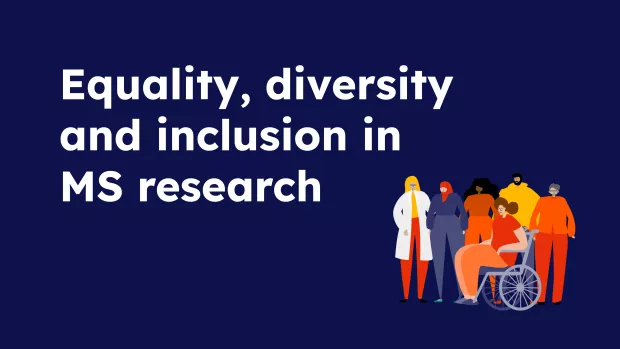
Managing your research award
Once you’ve been awarded funding, we’ll send your award documents. You’ll then need to manage your award in line with our Award Conditions and Policies.
This page includes all the information you need. If you have any questions, you can email the Awards Team at [email protected]. And you can download our Award Conditions and Policies document from the sidebar.
Confirming your award
When we confirm your award, we’ll send you an Award Letter, Commencement Notice and Details of Staff form. We’ll also send a copy of our Award Conditions and Policies. These are your award documents.
-
The Award Letter must be signed and returned to us within 30 days of the date on the letter. Signing the Award Letter confirms that you accept our Conditions and Policies and agree to follow them for the duration of your award.
-
The Commencement Notice confirms the start date of your award. This replaces the start date on your Award Letter. If you need to delay the start date of your grant, you can send us an updated Commencement Notice.
-
You must tell us the details of any research staff employed on your award using the Details of Staff form. If you haven’t identified suitable staff members yet, you must return this completed form as soon as they’ve been recruited.
You should return the completed documents to [email protected].
Claims for expenditure
Invoices must be submitted to [email protected] quarterly. They should be submitted in arrears and claim for directly incurred costs of research aligning with your approved application. You must include the following information:
- Your grant reference number
- The name of the principal investigator
- A name and contact details for queries
- The claim period
- Itemised expenditure under the correct budget heading (for example salaries, consumables, equipment)
- Salaries – each invoice must include staff names and period (if different from claim period). You must also include a breakdown of basic salary, national insurance, superannuation and London allowance (if applicable)
- Consumables – if the consumables amount is more than £1000 for an invoice, you must submit an itemised breakdown to support the invoice
-
Equipment – you must provide the relevant supplier’s invoice to support the invoice
We might ask for more information to support your claim. Queries must be responded to within two weeks to avoid delayed or non-payment.
A final invoice must be submitted within six months of the grant end date. The grant will be closed and no reimbursement will be made against invoices submitted after this date.
Late claims have a significant effect on our financial management. And they’re considered a serious breach of your award conditions.
Progress reports
If your award is longer than 12 months, you’ll need to submit annual progress reports. These reports update us on the progress of your grant to-date against the original objectives. At the end of your award, you’ll have to submit a final report. These reports allow us to monitor the impact of our funded research. And provide updates to any donors associated with your research award.
How do I submit progress reports?
You must submit all reports through Grant Tracker. We’ll send you an email when you need to do a progress report.
When is my report due?
Reports are due 90 days after the anniversary of the award start date. We’ll request these around a month before the anniversary date. At the end of your award, you’ll need to submit a final report. This is due within 90 days of the award end date.
What happens if I don’t submit my report?
Research awards are committed annually and only when we’ve got a satisfactory progress report. If you don’t submit your annual report, we won’t release funds for the subsequent grant years.
If you fail to submit your final report within three months of the grant end date, the award will be closed with the final invoice unpaid. You also won’t be able to apply for further funding from us while annual or final reports are outstanding. If you have any concerns about progress reports you should get in touch with us as soon as possible.
Extension, suspension and budget reallocation requests
Research doesn’t always go to plan. If you think you’ll need an award extension or to move your budget between categories to complete your objectives you should email [email protected] as soon as possible for a change request form.
Extensions
If your research is delayed for reasons outside your control, we can consider extension requests. You should email us to request an extension form as soon as possible.
We’ll consider no-cost extension requests, where the duration of the award is extended at no additional cost to us. And, under exceptional circumstances, you can ask for a costed extension, if you need more time and budget.
You should note:
- Extension requests will only be considered if an extension form is submitted
- Requests should be submitted a minimum of three months before the end of your award. We won’t consider extension requests submitted once the award has ended.
- If we have further questions about your extension form, you’ll need to answer these within two weeks of our email for the request to be considered. We won’t chase you for further information regarding your request
- We expect no more than one no-cost extension request for each award for a maximum of 12 months from the original end date. In exceptional circumstances, we may consider additional extensions but this will be done on a case-by-case basis
- You can expect a response from us within four weeks of submitting your request form. This might take longer if we’ve asked for more information
- You’ll need to give us a Gantt chart detailing the new timeline for the research with any extension requests
- Costed extensions are considered on a case-by-case basis. We expect you to explore other measures to support the award financially before contacting us for an uplift.
Suspensions
We could suspend your award if there’s a period of time where no research activity or spending is expected to happen. Award suspensions can be applied on all awards, except programme awards.
You should email us as soon as possible if you need a suspension. You’ll need to:
- outline the reason for the suspension
- tell us the date the research will restart
- tell us the new award end date.
No spending claims can be made while the award is suspended.
You should note:
- Suspension requests will only be considered if they’re submitted in writing
- Requests should be submitted a minimum of three months before the end of your award. We won’t consider suspension requests submitted once the award has ended
- If we have further questions about your suspension request, you’ll need to answer these within two weeks of our email for the request to be considered. We won’t chase you for further information about your request
- We expect no more than one suspension request for each award. In exceptional circumstances, we may consider additional suspensions but this will be done on a case-by-case basis.
- We have no formal restrictions on the length of time that can be taken but the dates must be agreed and approved by our Senior Research Manager.
- You can expect a response from us within four weeks of submitting your request. Unless we have asked for additional information, in which case this response may be delayed.
Reallocating your agreed budget
Sometimes you might need to move money between budget categories. For example, if you’ve spent less on consumables but need to support staff salaries. You should email [email protected] to make any virements requests. You’ll need to tell us which award year and how much budget you’d like to move between categories. We’ll need justification for the budget reallocation, including explanation of how it’ll support you meeting your original award objectives. We won’t consider budget reallocation requests once the award has ended.
Publishing your research
Acknowledging our funding
You must acknowledge our funding in all published research outputs, including papers, conference presentations and posters. You should include your grant reference number in the acknowledgements. You can use the text below:
‘This work was supported by the UK MS Society (grant reference: XXX).
Our open access policy
We want your MS Society-funded research to be as widely read and accessible as possible. All outputs from your award should be published with open access. This applies to research funded in-part or completely by us.
You can do this by publishing directly in an open access journal. Or by depositing your articles in EuropePMC once they’re published. If you’re not publishing through an open access journal, your paper must be deposited in EuropePMC within six months of the publication date.
We’re founding members of Health Open Research. This is an open access platform publishing a range of research outputs in a transparent and author-led manner. We don’t expect you to always choose this publication platform. But we hope this option removes some of the barriers you face when attempting to publish your work in traditional journals.
You should read our full Public Access to Research Policy in your Award Conditions and Policies document.
Tell us about your publications
Our Research Communications team works with our funded researchers throughout their projects to tell stories about their research. Working with us in this way can be a fantastic opportunity to showcase your work across our channels and beyond.
Who does this apply to?
In line with our Award Conditions and Policies, all MS Society-funded researchers must tell us about their publications before they are published.
- If your research is funded by us, you must let us know when you submit a paper, when an abstract is accepted at a conference, or other results of your research
- If we pay your salary, we’re interested in everything you publish, even if it's largely funded by other sources.
Why should I tell you about my publications?
We want to maximise the impact of the research we fund by making sure it’s shared widely in the research community. This helps the MS community understand its importance and shows our supporters that their donations are making a real difference. Telling stories about the latest MS research in the media helps raise awareness of MS with the general public.
You can help us do this by telling us before you publish your research. We can then decide the best route for each individual piece of research. This might include the development of a news story for our website, press release or social media post. Or to provide information for other teams across the charity.
We’ll work with you and everyone involved (like your university or other funders) to make sure everyone is happy with any planned communications.
What do I need to do?
Email us on [email protected] when your paper is submitted. You need to share any copies of pre-publication manuscripts with us.
Tell us when your paper is going to be published online. The earlier we hear about it, the more we can do to support it.
The information you provide is confidential. Only our team will see it before it’s published and you’ll be fully consulted on any planned activity.
We also need advance notice of any media work your institution plans about your research. Your institution’s communications team should contact our Research Communications team at [email protected].
Our position on researcher leave and part-time fellowships
We strongly believe that researchers should be supported to take periods of leave when they need to. And part-time opportunities should be available for early career researchers to give more people the chance to progress their careers. As part of our Equality, Diversity and Inclusion (EDI) action plan for MS Society research we're sharing our position on part-time fellowships. And on maternity, paternity, adoption and carer leave (family leave) and sick leave for our funded researchers.
Read more about our work to improve equality, diversity and inclusion (EDI) in MS research
Our position on researcher leave and part-time fellowships
-
We’re supportive of our funded researchers taking leave. For example, family leave (new parental, adoption and shared parental leave) and sick leave. This includes PhD students working on research we fund.
-
We support Early Career Fellowships and PhD Fellowships being completed on a part-time basis (minimum 50% full time equivalent)
What are we doing to support you?
Changes to our application forms
We’ve added a section to our application forms which gives you the opportunity to explain any career breaks or other mitigating circumstances. Our reviewers and review panel members can consider this when reviewing applications. We hope this will create a culture that normalises career breaks. And gives you confidence that these won’t impact your application for funding.
Supporting part-time fellowships
Our Career Development Awards (Early Career Fellowships and PhD Fellowships) can be completed on a full or part-time basis. This must be at a minimum 50% full time equivalent (FTE).
Supporting part-time Early Career Fellowships
You can tell us whether you’ll be doing your Fellowship full-time or part-time in your application form. You’ll need to tell us why you’re doing the Fellowship part-time. For example, if you’re working in another capacity at the same time, or have childcare responsibilities.
Supporting part-time PhD Fellowships
Most PhD Fellowships we fund are completed full-time. But we’re open to part-time PhD Fellowships (minimum 50% FTE) if this helps support talented postgraduate students in MS research. You should contact us at [email protected] if you’re a Supervisor applying for a part-time PhD Fellowship. Or if you’re requesting to change from a full-time to a part-time Fellowship after we’ve made the award.
Supporting researchers to take leave
We’re supportive of our funded researchers taking leave, for example family leave and sick leave. This includes PhD students working on research we fund.
This is our position on researcher leave. It outlines our viewpoint and our expectations, but it’s not a policy. Researchers working on our funded projects aren’t our employees. So you should check and follow the relevant leave policies at your institution.
Supporting research staff members to take leave
If you’re an employee (staff member) of a UK-based University, research institution and/or NHS hospital, medical practice or medical school, you have employment rights. This means you should be entitled to paid leave through your employment contract, for example family leave and sick leave. You can find out more on the UK Government Employment status pages. And by referring to your contract of employment and your institution’s policies. We’d strongly recommend checking what you’re entitled to by contacting the relevant department at your institution.
Supporting PhD students to take leave
Most institutions don’t consider PhD students to be regular, salaried staff members (employees). As a PhD student, you may not have the same employment rights as staff members. Depending on your institution’s policies, this may mean that you aren’t entitled to paid leave.
You or your Supervisor or Principal Investigator (PI) should speak to the appropriate department at your institution to check what you’re entitled to as an MS Society-funded PhD student.
We expect host institutions to provide paid family leave and sick leave to PhD students.
What if my institution doesn’t provide paid leave?
If your institution confirms they won’t provide paid leave, you or your Supervisor/PI should let us know by emailing [email protected]. We’ll get in touch to discuss your specific circumstances. And we may contact your institution directly to discuss their policy. We’ll then review the case internally to see if there’s any financial support that we can provide.
How do I request a period of leave for myself, a student or a salaried staff member working on a grant?
-
Follow the process for requesting leave at your institution
We encourage you to check what paid leave you or your staff member/student is entitled to.
-
Contact us to discuss your leave request
You or your Supervisor/PI must tell us about your leave by emailing [email protected]. You should do this as far before the planned leave as possible. We understand that sometimes you might not be able to give us much notice. For example, in emergency situations/unplanned sickness. But you or your Supervisor/PI should tell us as soon as possible after the leave has started.
-
Returning to work or your Fellowship after a period of leave
Your institution will have its own process and timescales for confirming your return to work or studies. Once a return date has been agreed with your institution, you or your Supervisor/PI must tell us by emailing [email protected]. You should contact us as far before your return date as possible.
Last full review:
We also update when we know about important changes.



